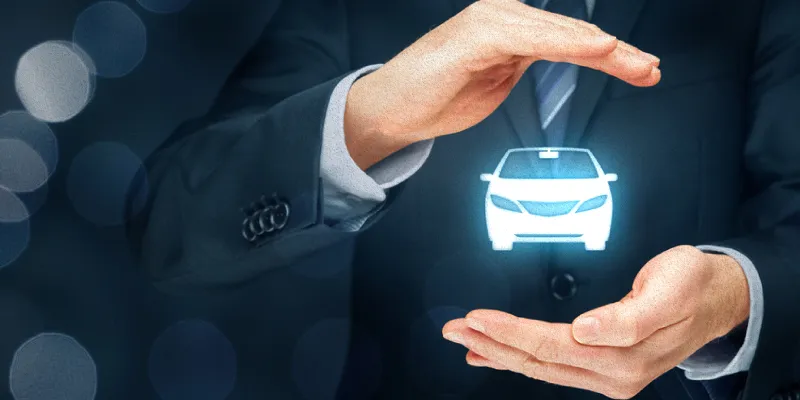5 companies in India are driving ‘connected car’ technology into the future
From radars, and Wi-Fi to smart apps and network security, the car is increasingly becoming a device, and Indian engineers are showing the way to a connected future.
Submarine cars, and those that drive themselves, have rocket launchers and radars on board, and also come equipped with basic medical aid – think futuristic cars and 007’s Aston Martin comes to mind.
While that may be fiction, the automobile industry today is trying to ensure fact is not too far behind. Today, every big internet conglomerate is working to crack different aspects in autonomous vehicle technology, and with more and more sophisticated systems on board, auto companies are literally becoming software majors.
China-based Baidu reportedly rolled out the 100th autonomous minibus from its production line this year, and everyone – be it Google or Daimler AG, Volkswagen AG, Tesla, Renault-Nissan Alliance, General Motors and Toyota - is riding high on automobile connectivity.
As incumbents (auto companies) spend big bucks on connected cars, the technology is no longer a fancy fantasy and extensive research and testing is underway to make connected cars safe and secure from a physical and digital perspective. According to market research consulting firm Stratistics MRC, the global connected car market accounted for $72.95 billion in 2017 and is expected to reach $280.36 billion by 2026, growing at a CAGR of 16.1 percent.
Global corporate entities are investing heavily in autonomous technology, and a part of the research is happening right here, in India. Sources say at least 25,000 engineers are working on this technology in cities like Bengaluru, Pune and Hyderabad, on aspects like telecom infrastructure, lossless data transfers and security, which form a crucial part of the connected things network.
With the bulk of the work being done in Bengaluru, here is the list of corporate centres of excellence or global innovation centres building autonomous technology in India for the world.

Robert Bosch Engineering India Limited
A few years ago, the company had filed more than 150 patents in a year, and it is now at the forefront of connected car research. Its first connected car systems are already under testing with Mercedes. The two companies have partnered to launch the first connected autonomous car in 2021, and some of the components of the modules of vehicle-to-vehicle (V2V) communication and car-to-infrastructure (V2X) are built here. Bosch is also testing the self-drive module on a Tesla (as a test subject), in Boxberg, Germany, and engineers inform YourStory that some of the work gets done in Bengaluru too.
The MySpin solution, an app created by Bosch that takes all apps from the smartphone and mirrors them on the car’s infotainment system, has been built in Bengaluru.
Renault Nissan Technical Centre
The Chennai-based technical centre of the alliance of car manufacturers Renault and Nissan has been churning out work on connected car launches of these two companies. It has also launched the NissanConnect app, which is available in India.
It builds modules for electric mobility, which are highly efficient cars because the electric motor charging is managed by a software. The centre is not too forthcoming about its plans but it supports the Renault Nissan Alliance, a joint shareholding between the two auto companies where they share synergies from R&D on platforms to product development, which is now on track to launch 40 vehicle models with autonomous drive vehicle technologies by 2022.
Mercedes Benz Research and Development India
Apart from its work with Bosch, MBRDI works not just on apps, but data generated by cars, future of infotainment, in-vehicle communications, car-to-car communication, and car-to-infrastructure. It is looking at different network modules from Wi-fi to Li-fi (sending data through a spectrum of light). Mercedes Benz has made a clear commitment to the connected car and is ramping up its Indian R&D centre in Bengaluru.
Continental AG
Continental is betting heavily on operating systems and data collection. It is also building the “intelligent antenna module”, which enables connected driving. Globally, it has built a central multi-antenna access point, which facilitates the receipt and exchange of information from infrastructure or other cars (WLAN p/n/ac), smartphones (BTLE and Wi-Fi), telephone networks (LTE/UMTS) or satellites (GNSS), and radio transfers (AM/FM). Continental provides the modules and its centre from Bengaluru works on connected car modules with high levels of security.
Tata Elxsi
Part of the Tata Group, it works on autonomous parking valet modules where a car understands the availability of parking spots and parks itself. There is a lot of internal work being done on software modules for autonomous and connected vehicles, which the company has not yet made public. It also has a platform that connects radars and cameras with machine learning to help drivers in difficult conditions. This work is done in Bengaluru.
Companies like Valeo, KPIT, Cisco, and Microsoft too are working on modules from India. However, what is required is a national consensus for a connected and autonomous vehicle in India because of its ability to increase safety levels. In India 1,46,377 people were killed in road accidents in 2017, according to the Ministry of Road Transportation.
Niti Aayog, which advises the Central government on policy changes, is yet to make a statement on the “connected car” in India. However, it has called for electric vehicles to become the mainstay of Indian road transportation over the next decade.







